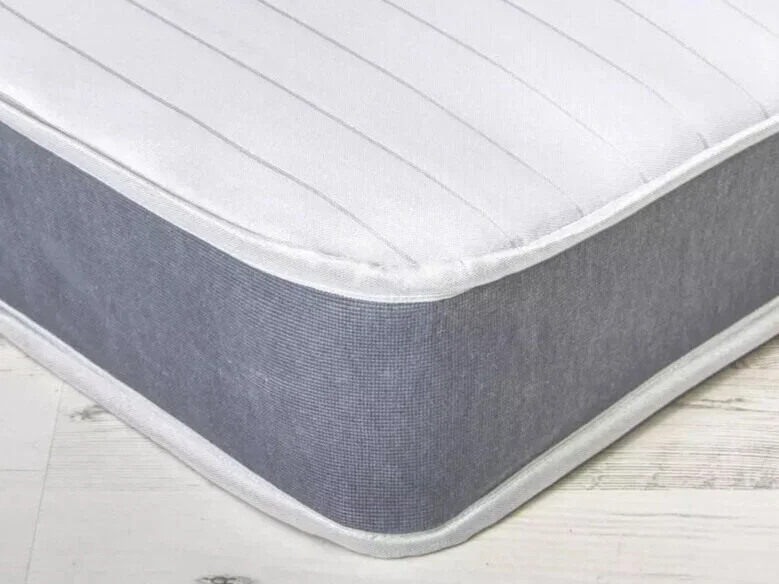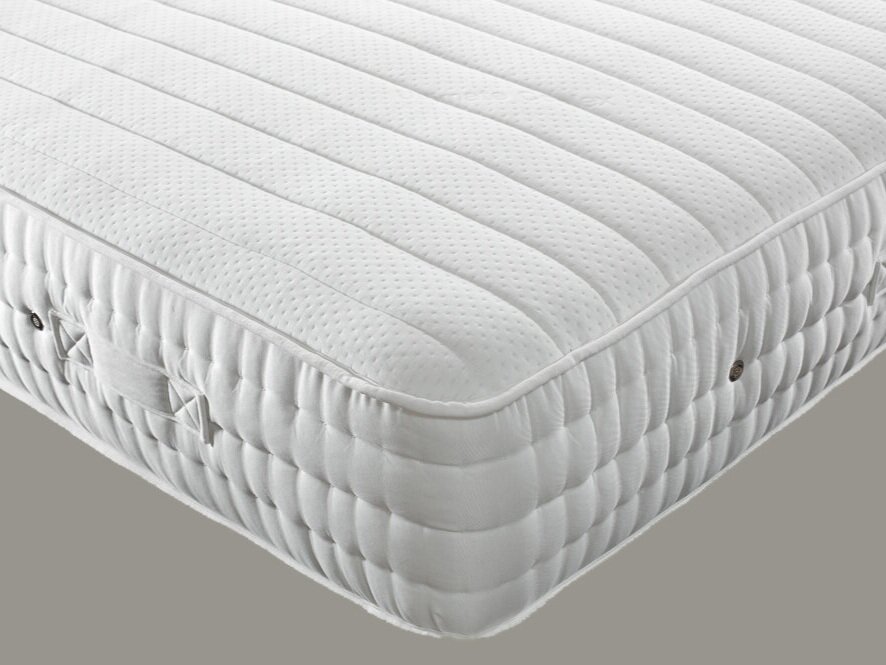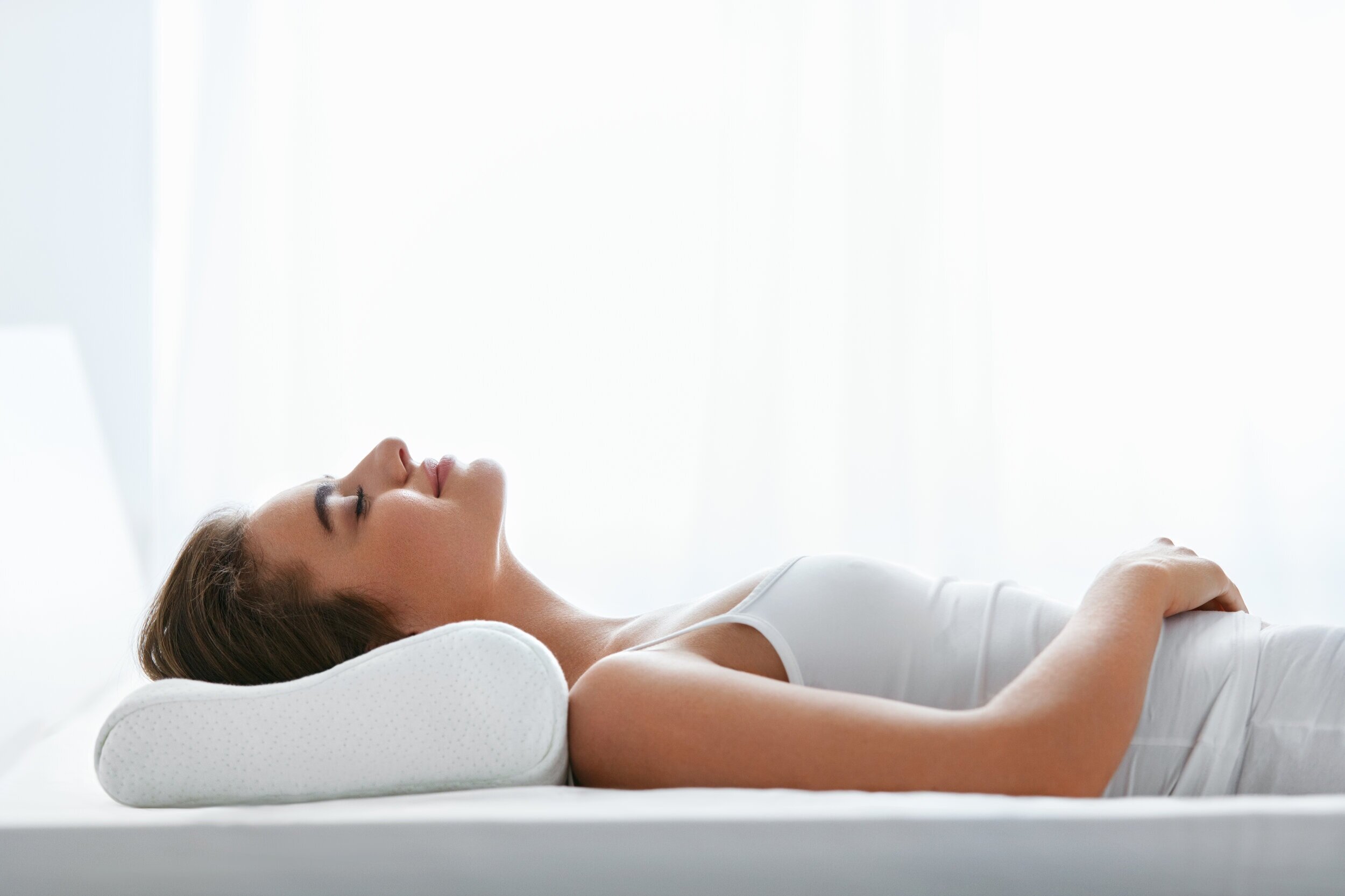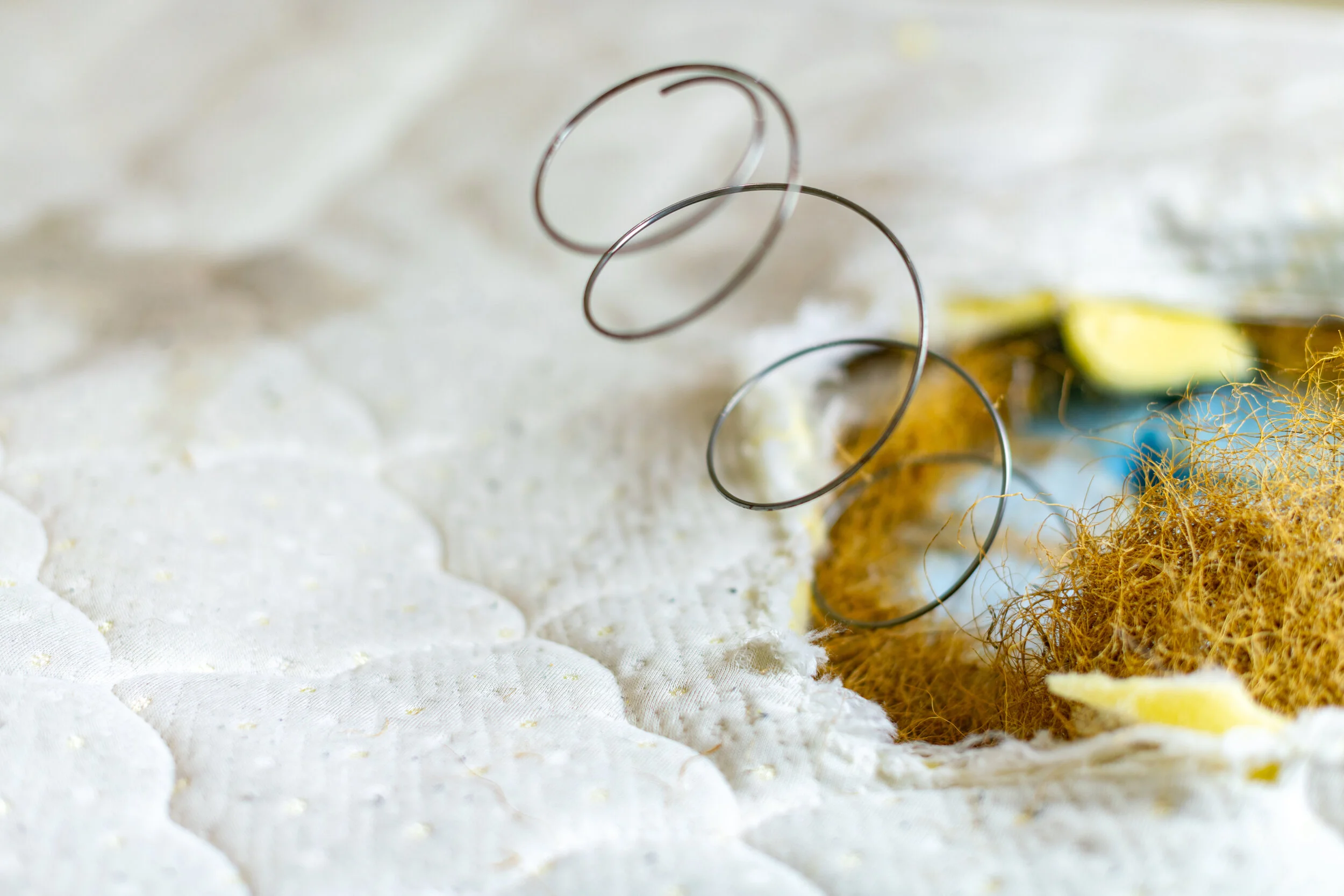
The best mattress is….
There is no best mattress.
Not every mattress is right for every person. When choosing the best mattress for you, it’s important to consider your build, preferred sleep position, your personal comfort preferences, and any health concerns, along with the type and size of mattress to fit your bedroom. The best mattress for one person is not the best mattress for you.
Choice is good.
When choosing the best mattress for you, it’s important to consider your preferred sleep position, your personal comfort preferences, and any health concerns, along with the type and size of mattress fit for your bedroom space.
So you can put your head down.
To help make buying your perfect mattress feel less intimidating, we created this easy guide full of impartial expert advice; and if we’ve missed anything, send us a question on the Questions and Answers page.
Everything you need to know about mattresses
Do you actually need a new mattress?
It’s likely you remember your parents—or even your grandparents—telling you a mattress needs to be replaced about every decade. But even though the warranty may last that long, the reality is it needs to be swapped out sooner—about every seven years.
Your mattress is like a giant sponge. It absorbs body oil, sweat, dead skin cells, dust mites, and more over time. (Fun fact: Research shows there could be up to 10 million mites inside a typical used mattress.) These often cause the comfort layers at the top of the mattress to deteriorate much faster over time, so you want to replace yours to maintain the maximum level of comfort and mattress health (You may also want to consider using a mattress protector to help deflect those dust mites and allergens.)
If you notice a substantial amount of sagging, lopsided-ness, or tearing, those are other indicators that your mattress is no longer providing enough support. Another sign: waking up with aches and pains or having challenges falling asleep because you can’t get comfortable.
In general, the way people develop pain and discomfort, or more chronic injuries, a lot of times has to do with our posture. Just like you would develop pain from poor posture after hunching over a computer all day, if you spend a lot of time sleeping in an unsupported position, you might develop pain or another health issue.
If you’re on a budget and not ready to buy a new mattress, you can extend the life of your existing mattress with these simple easy tips. It’s worth trying them before investing in a new one:
Rotating or flipping your mattress every month to more evenly distribute body weight and prevent/reduce dips from forming.
Mattress toppers can give your mattress a new life with an extra layer of comfort and support. Read more about mattress toppers here
Make sure you have the right pillows for you. Pillow buying guide
Give your mattress a thorough clean and refresh. Find out more here
How much should you spend on a new mattress?
So you’ve decided you need a new mattress? First thing to consider is your budget….
Cheap is not good
A cheap mattress is a false economy. Spending, say, less than £300 for your daily-use mattress is almost certainly not going to ensure a good night's sleep - unless you are very young, very light or frequently sleeping somewhere else.
Cheap thinner mattresses need replacing more often, perhaps as frequently as every 2 years. Spend a bit extra, and you should not need to change mattresses for around 7 years.
Invest in your health
Spend as much as you can afford. The minimum should be about £700 on the mattress and bed base combined. Think about it this way - how much would you spend on a sofa, which you’ll only sit on for an hour or two in the evening?
This is a product you’re sleeping on for 8 hours every night so it’s important to look at this as an investment for your health.
£ vs £££
Still, not every mattress in your home needs to be a premium item. It depends on the stage of life you’re in and what you need the mattress for.
You may be just looking to upgrade your kid’s bed or refurbish a guest bedroom, so you don’t need to spend as much, versus if you’re shopping for your main bedroom when you’re should be looking for a good quality bed that’s going to last you several years.
Mattress Firmness
So you’ve decided you need a new mattress? First thing to consider is your budget….
Cheap is not good
The consensus is that a cheap mattress is a false economy – spending, say, less than £300 for your daily-use mattress is almost certainly not going to ensure a good night's sleep unless you are very young, very light or frequently sleeping somewhere else.
Cheap mattresses need replacing more often, perhaps as frequently as every two years. Spend a bit extra, say, more than £500, and you should not need to change the mattresses for around 7 years.
Invest in your health
Spend as much as you can afford. The minimum should be about £700 on the mattress and bed base combined. It always strikes me as crazy that people will spend £1,000 or £3,000 on a sofa which they sit on for an hour or two in the evening, and less than £500 on a bed where they will spend an important eight hours every night.
This is a product you’re sleeping on every single night so it’s important to look at this as an investment for your health.
£ vs £££
Still, not every mattress in your home needs to be a premium item. It depends on the stage of life you’re in and what you need the mattress for.
You may be just looking to upgrade your kid’s bed or refurbish a guest bedroom, so you don’t need to spend as much, versus if you’re shopping for your primary bedroom when you’re really should be looking for a good quality bed that’s right for you and going to last you several years.
Mattress Technologies






Wool
Wool pillows are firmer and naturally hypoallergenic - resistant to mould and dust mites. Wool wicks away moisture from your head, and can be effective at helping regulate your temperature during sleep - keeping you warm in the winter and cool in the summer, making it a good choice for hot sleepers.
Feather/Down
These pillows are light and soft - perfect if you like a cosy place to rest your head, and better suited to back or front sleepers. These pillows are usually made from either goose or duck feathers and fibres. Although not recommended for anyone with allergies or sensitivities. Good quality feather/down pillows can be pricey, but worth it if this is the right pillow for you.
Cotton
Similar to wool in many ways, cotton pillows are also naturally hypoallergenic and resistant to dust mites and mould. Cotton pillows tend to be somewhat flat and softer, ideal for front or back sleepers. Cotton is also naturally breathable and often a smart choice for people with allergies and chemical sensitivities.
Memory Foam
Memory foam softens and contours to your head and neck - great if you switch sleeping positions through the night. A popular choice for people with head or neck pain that cause discomfort during sleep. Memory foam does retains heat, which can lead to restlessness and sweating for hot sleepers. These pillows can also give off chemical smells when new, that can unsettle some.
Synthetic/Microfibre
Synthetic pillows are insulating and warmer, making this a great option for cold sleepers. They’re relatively inexpensive and easy to care for, although typically need replacing more frequently. They tend to appear plump and springy, but are generally softer sink-in pillows. Synthetics may also be irritating to sensitive skin or eczema sufferers.
Latex
Natural latex pillows tend to be more firmer, but still very comfortable. This isn’t the kind of pillow you squish into just the position you like. These pillows hold their shape, making it perfect for side sleepers. Latex is also naturally hypoallergenic and resistant to mould and dust mites, and thanks to its eco-friendly make-up, latex is also quite breathable for cooler sleep.

Mattress Quiz
Mattresses should be chosen based on you - your preferred sleeping position, build, body shape, allergies, sensitivities, and temperature preferences. Try the mattress quiz for some tips:
Related Blog Articles












